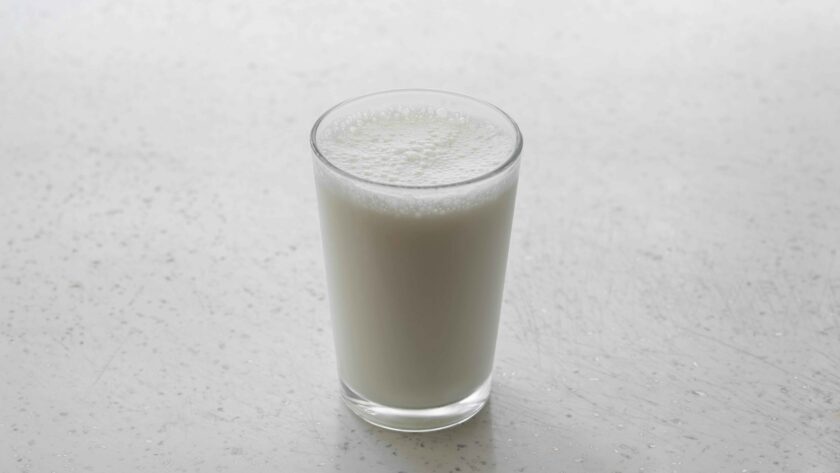For many, understanding whether cow milk is healthy feels like navigating a sea of conflicting opinions. Is Cow Milk Healthy? This question has been debated for years, with strong arguments on both sides. Supporters emphasize its nutrient-rich profile, while critics point to potential risks and ethical concerns. Is Cow Milk Healthy? This blog will explore the topic in depth, providing you with the insights needed to decide if cow milk is a good fit for your diet.
Cow milk has been a dietary staple for centuries, providing essential nutrients and serving as a base for countless recipes. However, recent debates over its health implications have left many people questioning its place in a balanced diet. While milk can offer valuable nutrition, it’s crucial to consider individual dietary needs and potential health concerns. This blog will guide you through the benefits, drawbacks, and alternatives to cow milk, helping you decide if it’s the right choice for you.
The journey to understanding whether cow milk is healthy involves examining its nutritional composition, potential health benefits, and risks. With evidence-based insights, you’ll gain clarity on how milk can fit into your lifestyle. Let’s dive into the facts.
Nutritional Composition of Cow Milk
Cow milk is packed with essential nutrients, making it a popular dietary choice. A typical 8-ounce (240 ml) serving of whole milk contains:
- Calories: 150
- Protein: 8 grams
- Fat: 8 grams (including saturated fats)
- Carbohydrates: 12 grams (mostly lactose)
- Calcium: 30% of the recommended daily intake (RDI)
- Vitamin D: 15% of the RDI
- Vitamin B12: 18% of the RDI
- Phosphorus: 22% of the RDI
- Riboflavin (Vitamin B2): 26% of the RDI
These nutrients support bone health, muscle function, and overall well-being. However, the specific health benefits depend on individual needs and how milk fits into your diet.
Health Benefits of Cow Milk
- Rich Source of Calcium Calcium is essential for strong bones and teeth. It provides a readily absorbable form of calcium, making it a valuable addition to a diet that prioritizes bone health.
- High-Quality Protein The protein in cow milk is complete, meaning it contains all nine essential amino acids required for muscle repair, growth, and maintenance.
- Fortified with Vitamin D Many cow milk products are fortified with vitamin D, which aids calcium absorption and supports immune function.
- Supports Heart Health Milk’s potassium content can help regulate blood pressure by counteracting the effects of sodium.
- Versatile in Diets From smoothies to baked goods, cow milk serves as a versatile ingredient, enhancing the nutritional profile of many dishes.
Potential Risks of Cow Milk
- Lactose Intolerance Many individuals lack the enzyme lactase, needed to digest lactose (milk sugar). This can lead to bloating, diarrhea, and discomfort.
- Allergies Cow milk allergy, common in children, can cause symptoms ranging from skin reactions to severe respiratory issues.
- Saturated Fats Whole milk contains significant saturated fats, which may contribute to heart disease when consumed in excess.
- Hormones and Antibiotics Concerns about synthetic hormones and antibiotic residues in milk have led some people to opt for organic or plant-based alternatives.
- Ethical and Environmental Concerns The dairy industry’s impact on animal welfare and the environment has prompted some to reconsider cow milk consumption.
Alternatives to Cow Milk
For those who cannot or choose not to consume cow milk, several alternatives are available:
- Almond Milk: Low in calories, but lacks protein.
- Soy Milk: High in protein and similar to cow milk in nutrient profile.
- Oat Milk: Creamy texture with added fiber.
- Coconut Milk: High in fat, but low in protein.
- Lactose-Free Milk: Real cow milk treated to remove lactose.
Common Myths About Cow Milk
- Myth: “Milk is Necessary for Strong Bones” While milk is a good source of calcium, other foods like leafy greens, almonds, and fortified plant milks can provide similar benefits.
- Myth: “Milk Causes Inflammation” Research shows that milk is not inflammatory for most people unless they have a specific intolerance or allergy.
- Myth: “Raw Milk is Better” Raw milk carries a risk of bacterial contamination and offers no proven nutritional advantages over pasteurized milk.
FAQs
Q: Is cow milk suitable for everyone?
A: No, individuals with lactose intolerance, milk allergies, or dietary restrictions should avoid or limit cow or buffalo milk.
Q: How much cow milk should I drink daily?
A: Dietary guidelines suggest 2-3 servings of dairy per day, but this varies based on individual needs.
Q: Are there health benefits to switching to low-fat or skim milk?
A: Yes, these options reduce calorie and saturated fat intake while retaining essential nutrients.
Q: Can children drink cow milk?
A: Yes, but whole milk is recommended for children under two years old for healthy growth and development.
Q: Is organic milk better than regular milk?
A: Organic milk avoids synthetic hormones and antibiotics but has a similar nutritional profile to regular milk.
Balancing Milk in Your Diet
Whether cow milk is healthy for you depends on your nutritional needs, health conditions, and ethical considerations. If you enjoy milk and tolerate it well, it can be a valuable part of your diet. However, it’s not an essential food, and many alternatives can provide similar nutrients.
By understanding the benefits and potential risks of cow milk, you can make informed choices that align with your health and lifestyle goals. Ultimately, the key is moderation and ensuring your diet is balanced and nutrient-rich.




Leave a Reply